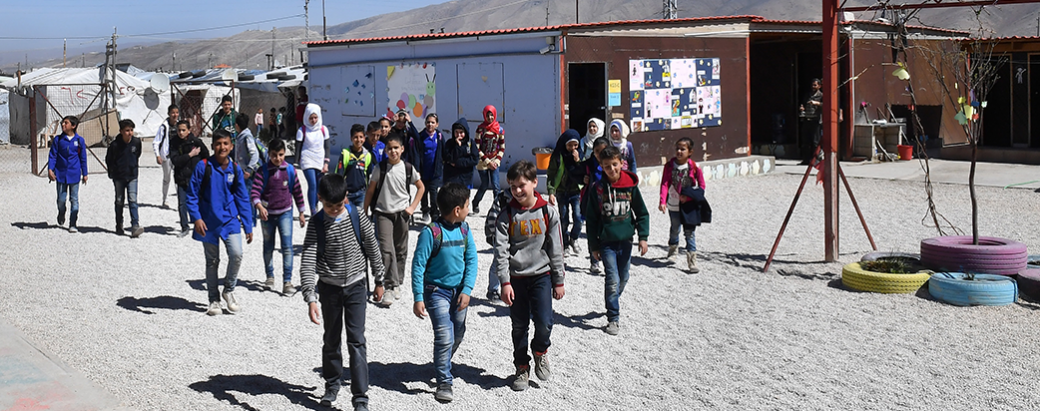
About the Project
This project is one of the 2018 WISE Awards finalists.
The Ghata project by the American University of Beirut, is a portable, scalable and sustainable unit which brings education to refugees in collective shelters and tented settlements.
Context and Issue
Over half of the 1.1 million registered Syrian refugees in Lebanon are below the age of 18. Despite increasing efforts by UNICEF and the Ministry of Education and Higher Education to ensure students’ access to learning, only an estimated 40% of refugees of primary school age (6-14) are enrolled in formal schooling, and merely 2% are enrolled in secondary school (15-18). Barriers to refugees’ education include, but are not limited to, prejudice, lack of psychosocial support, poverty, limited mobility, and inadequate built environments for learning.
Solution and Impact
The Ghata project brings education to refugees in collective shelters and tented settlements during a protracted crisis, and builds capacity for educational continuity upon their return home. It is a holistic restorative built environment that makes high quality education accessible, increases knowledge attainment, reduces level of distress, and nurtures hope among displaced and refugee communities. Ghata (Arabic word for cover) overarches student-centered educational interventions currently reaching more than 5,000 refugee children and youth annually.
Ghata was designed based on refugees’ shelter building strategies using low-cost material found abundantly in local markets. It takes two refugees six hours to assemble a 20 square meter unit, three hours to disassemble it for reassembly in another location. The unit endures severe weather conditions with a lifespan that extends between 10 to 15 years, which is almost equal to the average stay of refugees during protracted crisis. To date, ten Ghata schools are operational across Lebanon. In addition to the delivery of quality education, Ghata campuses are anchored within refugee communities and often used by students, parents, and teachers to celebrate cultural traditions.
Future Developments
The vision is to extend Ghata across international landscapes of crisis by institutionalizing the approach of a holistic restorative environment for refugees’ education.


